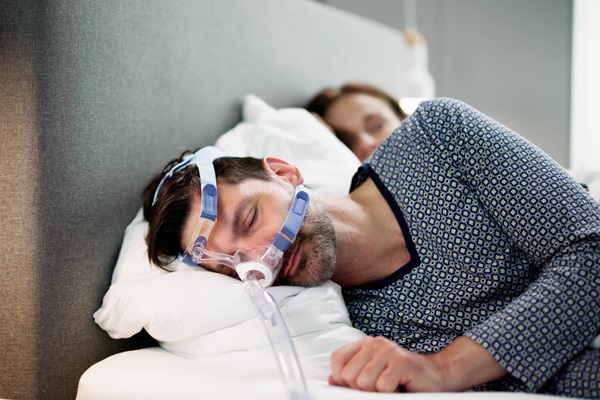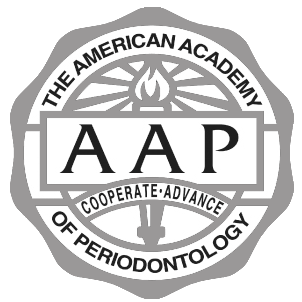What Are the Causes of Sleep Apnea?

Sleep apnea is a fairly common medical condition that affects millions of Americans every day and, in some cases, can have life-threatening side effects. To get the right kind of help for your apnea, it first helps to understand the causes of this sleep condition, what the different causes mean for treatment, and how you may be able to find treatment as easily as going to your local dentist and having them prescribe you the right kind of dental appliance.
What is sleep apnea?
Before we talk about the causes, we first would like to describe what the condition is and how it affects people as they try to sleep.
As the name suggests, this condition is a sleep disorder. Unlike other disorders that cause people to behave in certain ways, such as night terrors, sleepwalking, or sleep talking, this condition affects how a person respirates while sleeping. Without enough oxygen, a person can suffer severe side effects and consequences. Depending on the specific type of apnea, the reason for the disruption in breathing changes, and that also changes how the condition is treated.
Types of apnea disorders
There are currently three types of apnea disorders that a person can suffer from. To understand the proper treatment, it is necessary to know what type you have and how it affects the body.
Obstructive apnea
Obstructive is the most common type of apnea and the one that most people with the condition suffer from. In the case of obstructive apnea, the airway becomes closed off due to the position of the jaw and throat while a person attempts to sleep. The body is sometimes unable to remove this obstruction and get normal airflow, which leads to apnea symptoms like sleep deprivation, migraines, brain fog, and other symptoms.
This type of condition can be treated by several means, including forcing air into the patient and realigning the airway for improved airflow.
Central apnea
Central apnea is a brain disorder in which a signal from the brain that tells the body to breathe intermittently interrupts. When this happens, a person quite literally forgets to stop breathing. Because of the nature of this apnea, the only treatment is using a sleep machine that forces air into the patient’s body, keeping their body oxygenated.
Complex apnea
Complex apnea is a combination of both obstructive and central apnea. The patient may stop breathing due to airway obstruction and may also have trouble with brain signals, causing them to stop breathing intermittently. In most cases, a breathing machine is also used to treat this form of apnea.
How a dentist can help with obstructive sleep apnea
If you have obstructive apnea, which, as we said, is the most common form of the condition, there is a good chance that you can avoid the sleep clinics and the bulky breathing machines and instead head straight to the dentist.
If you have already been diagnosed with obstructive apnea, the dentist can prescribe you a custom-made mouthguard to wear while you sleep. The purpose of this mouthguard is to move the jaw forward, thereby repositioning the throat to relieve the obstruction and provide better airflow. While it will not completely cure the apnea, it can vastly reduce episodes and symptoms.
While getting treatment at a sleep clinic or from a sleep specialist is possible, those options lead to a sleep machine worn while a person sleeps. Many patients find this option too invasive and restrictive, with not enough benefits to warrant the inconvenience. For this reason, most patients prefer the mouth guard option provided by their dentist.
Understanding more about sleep apnea
As you can see, this type of sleep disorder is a serious condition that can affect a person’s quality of life and may even cause serious side effects and symptoms. If you have an obstructive form of apnea, it is possible to get some relief from your local dentist thanks to a specially-made mouthguard. The other option is to use a sleep machine that attaches to the face, and forces air into the body. The benefits for each option are about the same as patients will experience a reduction in symptoms and improved quality of sleep from both a mouthguard and a sleep machine.
Because of how easy it is to sleep with a mouthguard compared to a sleep machine, most patients prefer the mouthguard option. If this sounds like the right option for you, visit your dentist today and ask about a mouthguard for sleep disorders.
Request an appointment here: https://somervilledentist.com or call Assembly Dental at (857) 300-5779 for an appointment in our Somerville office.
Check out what others are saying about our dental services on Yelp: Do I Have Sleep Apnea in Somerville, MA.
Related Posts
Sleep apnea is a serious sleep disorder that affects millions of individuals worldwide. It occurs when breathing repeatedly stops and starts during sleep, disrupting rest and potentially causing long-term health consequences. Many people are unaware that a general dentist plays a key role in diagnosing and managing sleep apnea, particularly with non-invasive treatment solutions. By…
Snoring is not the only sign of sleep apnea. It is a significant sleep condition that may have a negative impact on your health and quality of life in a short amount of time. Aside from feeling tired and drowsy throughout the day, untreated sleep apnea makes you vulnerable to different major health problems, including…
You do not need to struggle with sleep apnea. Call us to schedule an appointment for treatment.If you or a loved one struggles with snoring while asleep, you might be surprised to know that dental treatment can help. While people may snore from time to time, loud, excessive snoring can be the sign of a…
A dental checkup exam is performed to determine the condition of the patient’s oral health. The goal is to detect any concerns as early as possible so that they do not worsen or cause other health issues. This article discusses the types of oral issues your dentist may look for during a dental checkup examination…






